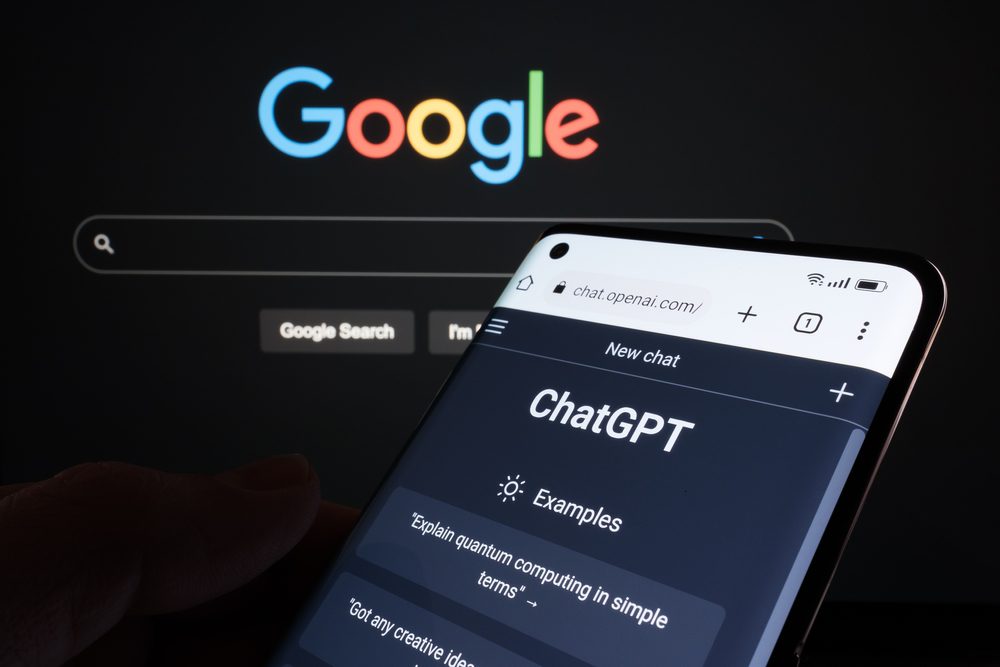AI tools and writing assistants like ChatGPT are on the rise, making it quicker and easier to generate text-based content like blogs, news releases and even pitches. The resulting influx of AI-generated content begs the question: how will Google treat this kind of content? Will brands and creators get penalized for using AI? The answer, like many things with Google, is a bit more complex than a simple yes or no.
Instead of judging content based on how it was made (AI or human), Google judges the quality of the content, regardless of who wrote it. After all, human-written content can be just as poor.
So, how is quality measured? Google’s looking for signals of quality through E-E-A-T (Experience, Expertise, Authority, and Trust). It wants content that reflects genuine knowledge and helps searchers find the information they’re looking for quickly and easily.
Google’s Helpful Content Update attempts to weed out low quality, unoriginal and unhelpful content from its results. These updates give us valuable insight about what Google now values (and devalues) when it’s deciding what content to rank.
Here’s how to avoid the common pitfalls of poor content, and crucially, AI’s potential to amplify it.
Bookend the Process With Human Intervention
Make sure that there is a human to brief the AI tool effectively in the first place, and to review and edit the output. The communicator doing quality control can check for things like brand tone of voice, unconscious bias, accuracy and sector-specific regulation.
Make It Unique
In a sea of mediocre content, how will Google know what to rank first? SEO-first content written for search engines instead of people is boring, repetitive and forgettable. It could be written by any one of your competitors. Once AI has given you a template or topic suggestion, make it your own. Overlay your brand’s unique experience and expertise, in your brand’s tone of voice, and it will stand out from the rest.
Coach It Towards Better Outputs
Start with a comprehensive brief; the same you would give to an intern or new comms employee. Tell it where the piece of content will be published, what key points you want included and how long it should be.
Don’t accept AI’s first answer. Ask it to rewrite the brief according to specific feedback.
Ask it: do you think that’s engaging enough? Will my audience find that compelling? Can you make it sound more professional? It will easily critique its own work, and together you can hone it until you’re ready to take the reins.
Focus on People and Their Intent, Not Search Engines
Over-optimized, keyword-stuffed content will become a thing of the past. Humans actually don’t like wading through 3,000 words of keywords and synonyms to find the answer we’re looking for. Content that hands us the answer we need quickly and easily will become much more important. Finally.
Think about what people are looking for, and how best to help them find it: beyond text-based formats.
Prioritize Quality over Quantity
Fewer, better pieces of content work harder than lots of lower-quality ones. So instead of using AI to churn out lots of poor-to-satisfactory pieces, reinvest the time you saved back into a few bits of work and really elevate them from satisfactory to exceptional.
Emphasize Expertise
AI-generated content inherently lacks the unique perspectives and credibility that humans have. This is especially true for subjective topics that require context, like business strategy, travel advice or makeup tips.
Even if you use AI tools to assist in content creation, overlay your expertise manually. Add case studies, expert advice or embed relevant social posts or explainer videos. Make it much better than anything your competitors are doing.
As AI tools and writing assistants become more widely used, the only way to stand out will be to inject your unique brand voice, experience and expertise. That way you can still keep humans at the heart of the content creation process, but you also get the best of both worlds—AI-led efficiency and a distinct, authoritative brand presence that can be recognized by people and search engines alike.
Sarah Evans is Head of Digital at Energy PR.

